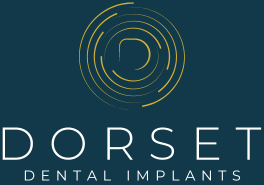Tooth Extraction: Causes, Procedure and Replacement
Almost 75% of people in the UK are without their full set of natural teeth.
Tooth extraction is a very common dental procedure.
Many teenagers and adults have their wisdom teeth removed, however, there are several other reasons why a patient will need their teeth extracted.
Why would I need a tooth extracted?
If your tooth is decayed or damaged in any way, and cannot be repaired with a filling or dental crown, then your dentist will consider removing it.
Here are a few reasons why your tooth will be extracted:
- Your tooth decay is severe
- You have gum disease (Periodontitis)
- Your tooth is broken and cannot be repaired
- You have an abscess or severe ulcer on your gums and around your teeth
Teeth are not only extracted as a result of decay, infection or damaged teeth, but you may also have teeth removed due to overcrowding in the mouth.
This is so that there is enough space for the teeth to straighten out.
What is the tooth removal procedure?
The tooth removal procedure can be split up into 4 processes:
1. Preparation
Firstly, your dentist will ask about your dental and medical history ahead of the procedure.
Ensure that you provide up-to-date information about your allergies, any pre-existing health conditions, or medications you are currently taking.
At this stage, ask any questions that you have, so that you can feel fully informed and comfortable going into the procedure.
2. Anaesthesia

Your tooth will be removed under local anaesthetic. Though the procedure will be painless, you will still feel slight pressure.
If you are very anxious about the procedure, it might be possible to opt for sedation. It is always good to discuss this with your dentist ahead of the treatment.
3. Procedure
- A local anaesthetic will take effect
- Your dentist will widen your tooth socket and gently loosen your tooth
- Your tooth will be removed
- Your dentist may put a stitch in your gum to help it heal
If you experience any pain during the procedure, make sure to tell your dentist immediately.
4. Aftercare
Your dentist may recommend painkillers, antibacterial mouthwash, and some short-term diet changes while your gum is healing.
They may also prescribe antibiotics to help prevent infection in the treated area.
If your tooth extraction has been a complicated procedure, you may have to arrange a follow-up visit, so that a dental specialist can check that the wound is healing properly.
Why should I replace a missing tooth?
- Teeth may loosen and move into gaps left by missing teeth
- Your face shape changes due to an impact on bone structure
- TMJ disorder
- Increased risk of infection
- Gum disease
What are the replacement options?
There are several replacement options for missing teeth so that you can restore your smile quickly:
The best tooth replacement option is a fixed dental implant.
These not only look and feel like natural teeth but also are designed to last up to 20 years and are completely fixed.
Other advantages include:
- Durable, permanent and fixed replacement
- Minimal maintenance required
- Natural look and feel
- Prevention of jawbone loss
- No need for teeth either side of the implant to be changed
- Cost-effective in the long-term
Get in touch today
Here at Dorset Dental Implants, we are highly experienced in effective restorative treatments that last.
Call us today on 01202 973 300 to discuss how we can restore your smile.
